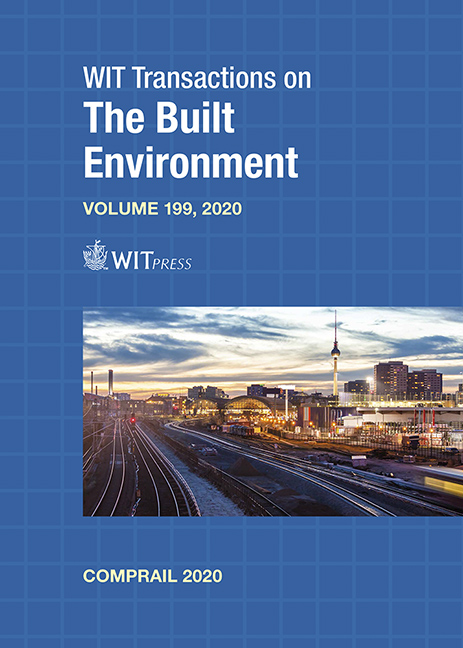DEVELOPING A GENERALISED ASSESSMENT FRAMEWORK FOR RAILWAY INTERVENTIONS
Author(s)
JOHN ARMSTRONG, GEORGIOS REMPELOS, JINGFU WEI, JOHN PRESTON, SIMON BLAINEY, JOHN EASTON, CLIVE ROBERTS
Abstract
Work undertaken on the socio-economic assessment of the installation of under-sleeper pads (USPs) on a busy commuter railway route in Britain, as part of the Track to the Future (T2F) project, was presented at COMPRAIL 2018. This was followed by an expanded, comparative analysis of the same route, comparing the noise-reduction and other costs and benefits of USPs, rail dampers and noise barriers, published in the International Journal of Transport Development and Integration. Such analyses provide useful information and decision-making assistance to infrastructure managers, funders and other stakeholders, but typically require the repeated development of bespoke models of study locations, interventions and effects. The “one-off” nature of these models increases the time and costs required for such studies, and makes it more difficult to compare similar schemes in different locations, or different types of intervention in a single location. There is, therefore, a need for an improved, more generalised and standardised, transferable, replicable and comparison-enabling approach to the socioeconomic assessment of such interventions. Ongoing work on the T2F project entails the development and use of standardised templates to describe the input costs and expected impacts of different infrastructure, rolling stock or operational interventions. These form the inputs to, and part of the development for, T2F of an improved, generalised, ontology-based assessment framework, which is being developed using the West Coastway railway line between Portsmouth and Brighton on England’s south coast as an initial case study. This paper describes the context and rationale for the development of the assessment framework, its components and the methodology being adopted.
Keywords
railways, maintenance, renewals, enhancements, interventions, environmental impact, economic assessment, assessment template, ontologies






